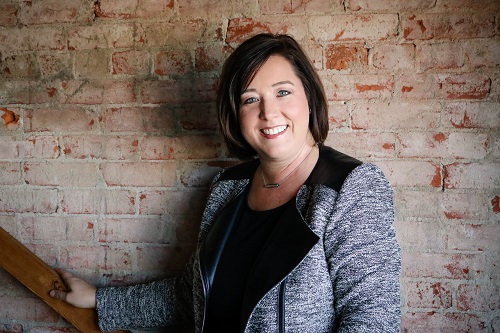Four Keys to Make Networking Relational, NOT Transactional
By Kristin Winkle Beck (‘97), CEO & Executive Coach, Pivot Point Professionals, INC
“You should be networking more.” If the thought of networking makes your eyes roll, your heart race, or your stomach churn, maybe a change of perspective can help. Many people think reaching out to an acquaintance or connecting with a complete stranger is terrifying and something to be avoided at all costs, but what if just one simple conversation could be the start of a strong, mutually gratifying relationship for both of you? What if the actions that come from one simple conversation lead to a new relationship and experiences that ultimately make a difference for both of you? Would you be willing to take the chance and step outside your comfort zone if you thought you could build a mutually beneficial relationship and help the other person just as much as he/she could help you?
Landing a job offer or a significant business opportunity after just one single networking conversation is about as likely as securing a marriage proposal after a first date. But for those of us who are married or in a long-term relationship, we might remember the nerves, the uncertainty, and maybe even the anxiety that we felt when we met our beloved for the first time. In most cases, something about the first meeting led to more conversations and follow-up actions, which ultimately began a relationship that blossomed into something more significant. It may not have happened right away (not everyone experiences love at first sight), but with continued engagement and likely some patience, a life-changing journey started.
The same can be said for professional networking. Many of us are so caught up in our own circumstances and desires that we fail to stop and consider how we might be able to add value, contribute, or help the other person also. We put far too much pressure on ourselves and have ridiculously high expectations for the first conversation with a new acquaintance or new professional contact. Sadly, many approach networking as a transactional activity rather than a relational one.
Here are four keys to help you stay focused on the relational, not transactional components of building and strengthening the professional relationships in your network:
- Strong relationships take time. Let go of the expectation that one conversation or one meeting is all you need. Relationships evolve over time and require tending. Invest appropriate time and energy with your connections to cultivate trust, reliability, and mutual respect. You may not reap immediate rewards with a new contact but trust your instincts when discerning which connections to invest in to establish a healthy network of professionals.
- Successful relationships involve give and take. Networking relationships are no different. While you may have time-sensitive needs, remember that the other person likely has some needs too. Don’t get too caught up in your own agenda that you forget to ask thoughtful, open-ended questions of your new connection to learn about his/her journey and current challenges. Become genuinely curious to get to know the other person, and be a good listener. Be generous with your empathy, your own networking connections, and your ideas/resources.
- Healthy relationships grow and evolve. In our personal lives, we don’t expect brand new acquaintances to do big favors for us or fulfill significant requests. The same goes for new professional contacts. Make sure any requests you are making are relatively easy for your contact to fulfill, especially early in the relationship. This can be as simple as asking for an introduction to someone they work with or for a short phone call to learn more about their personal experience in an industry or company. Always be quick to follow up with an appropriate thank you and any updates coming out of your initial conversation. Be open and willing to return the favor- don’t forget to ask how you can help them by sharing your professional expertise or connections. Keeping your promises and honoring your commitments are simple ways to continue building trust.
- Good relationships require patience. The old saying “timing is everything” is also true when networking. Be mindful that people have a variety of demands on their time and are often juggling multiple priorities. Just because someone is not able to conform to your expectations within the requested timeframe for action or desired response time doesn’t mean they won’t be a valuable contact. Be patient and remember this relationship may yield stronger benefits for both of you in the weeks and months ahead.
Nobody ever said networking was easy, but it most definitely can be worth it when you focus on the relational aspects of meeting new people and expanding your network. Most importantly, be yourself. Authenticity will be far more attractive and yield better outcomes than trying to be someone that you’re not. Here’s to building a stronger and more productive network, one relationship at a time.
Want more networking tips from Kristin? Register for our upcoming LEARN with @LifeAfterWake webinar, “Make Networking Work for You,” facilitated by Kristin on November 18, 2020 at 12pm EST.


